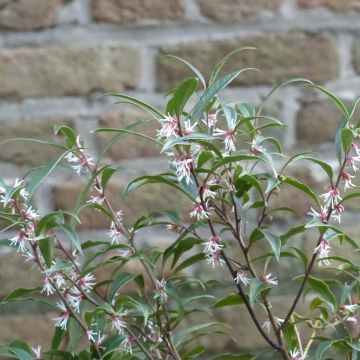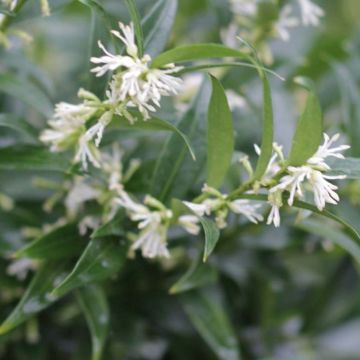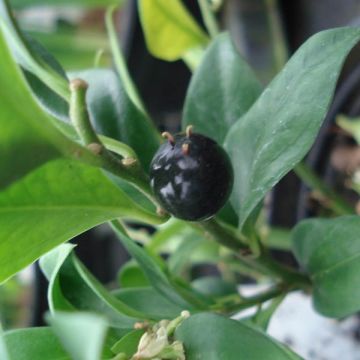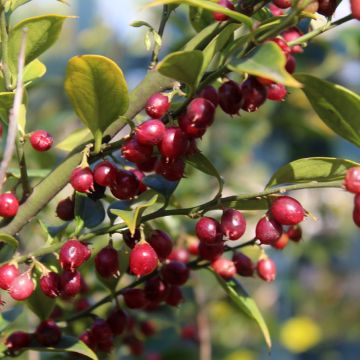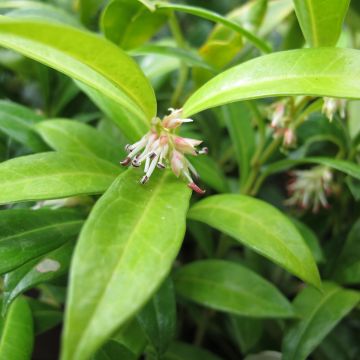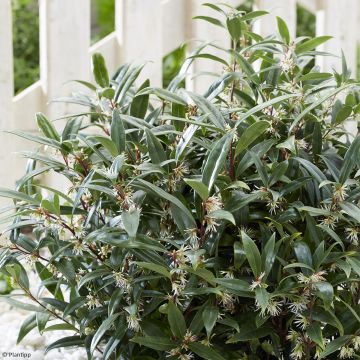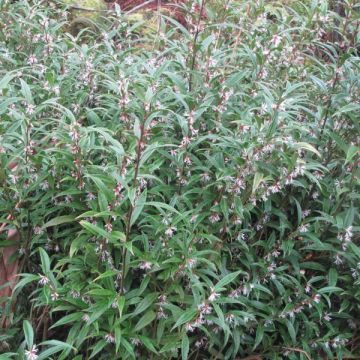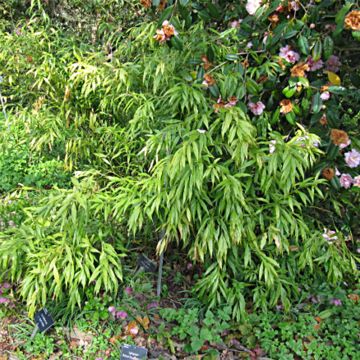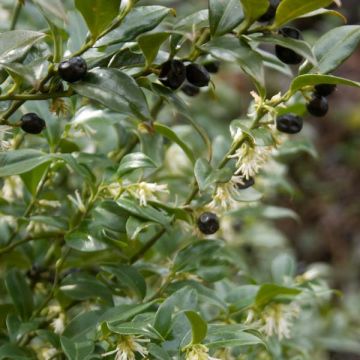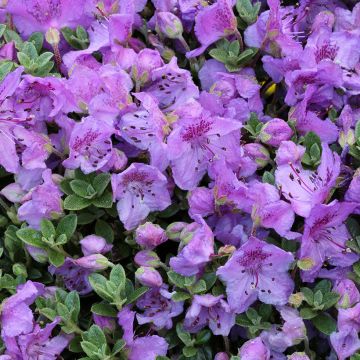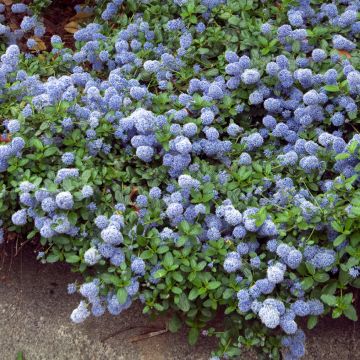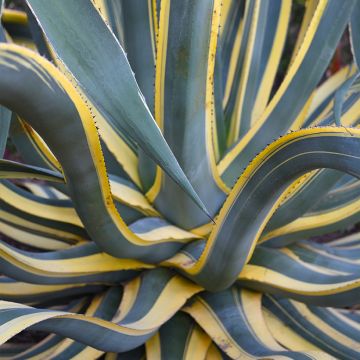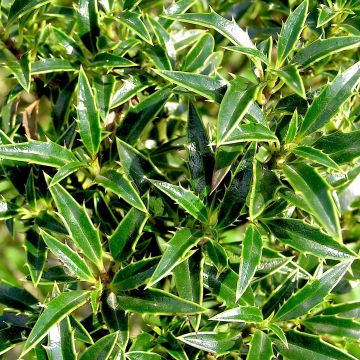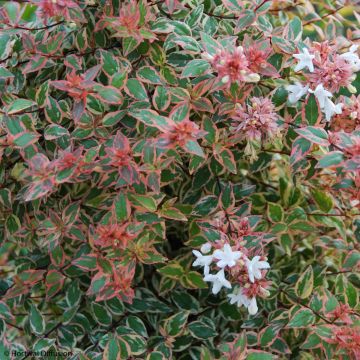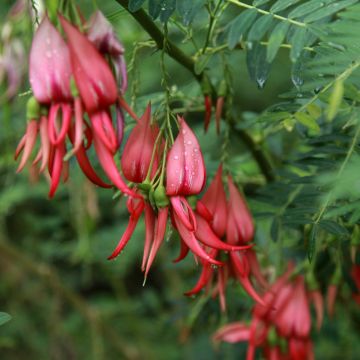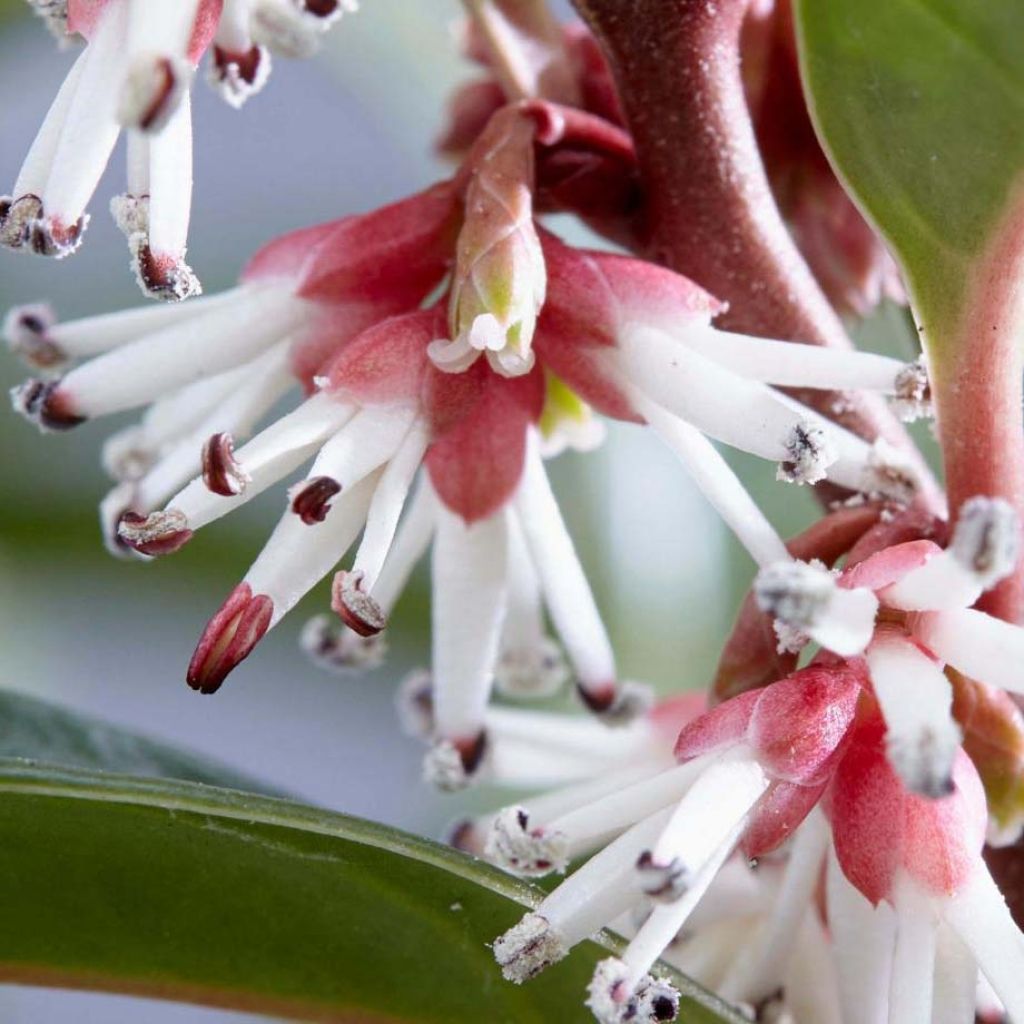

Sarcococca hookeriana Winter Gem
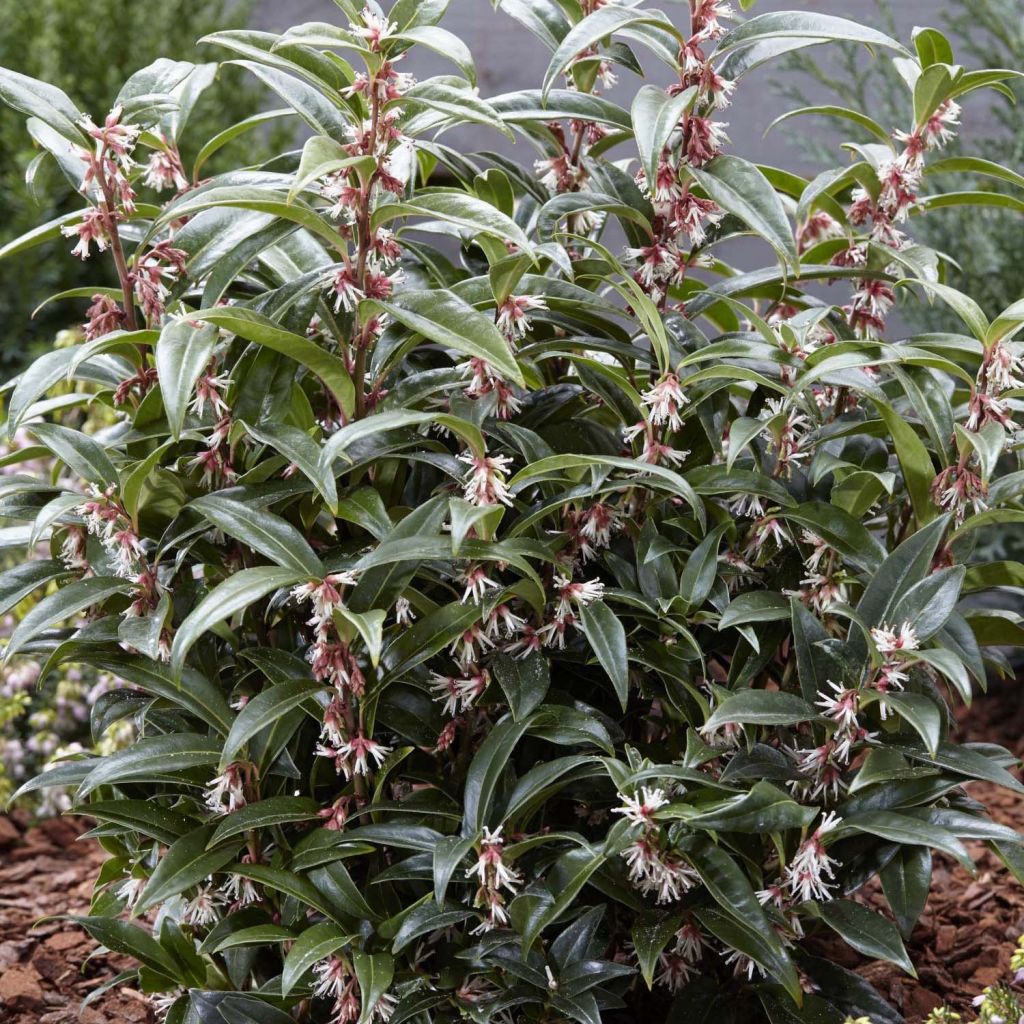

Sarcococca hookeriana Winter Gem
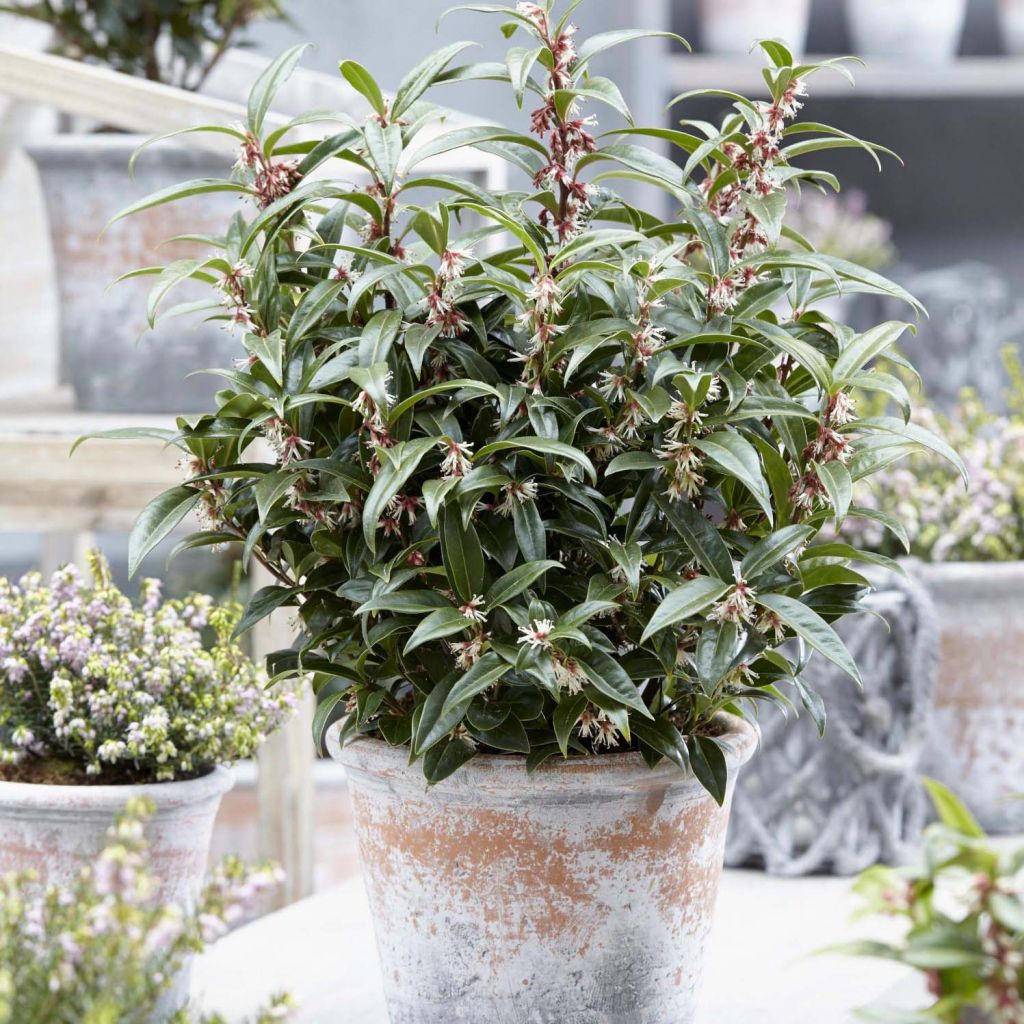

Sarcococca hookeriana Winter Gem
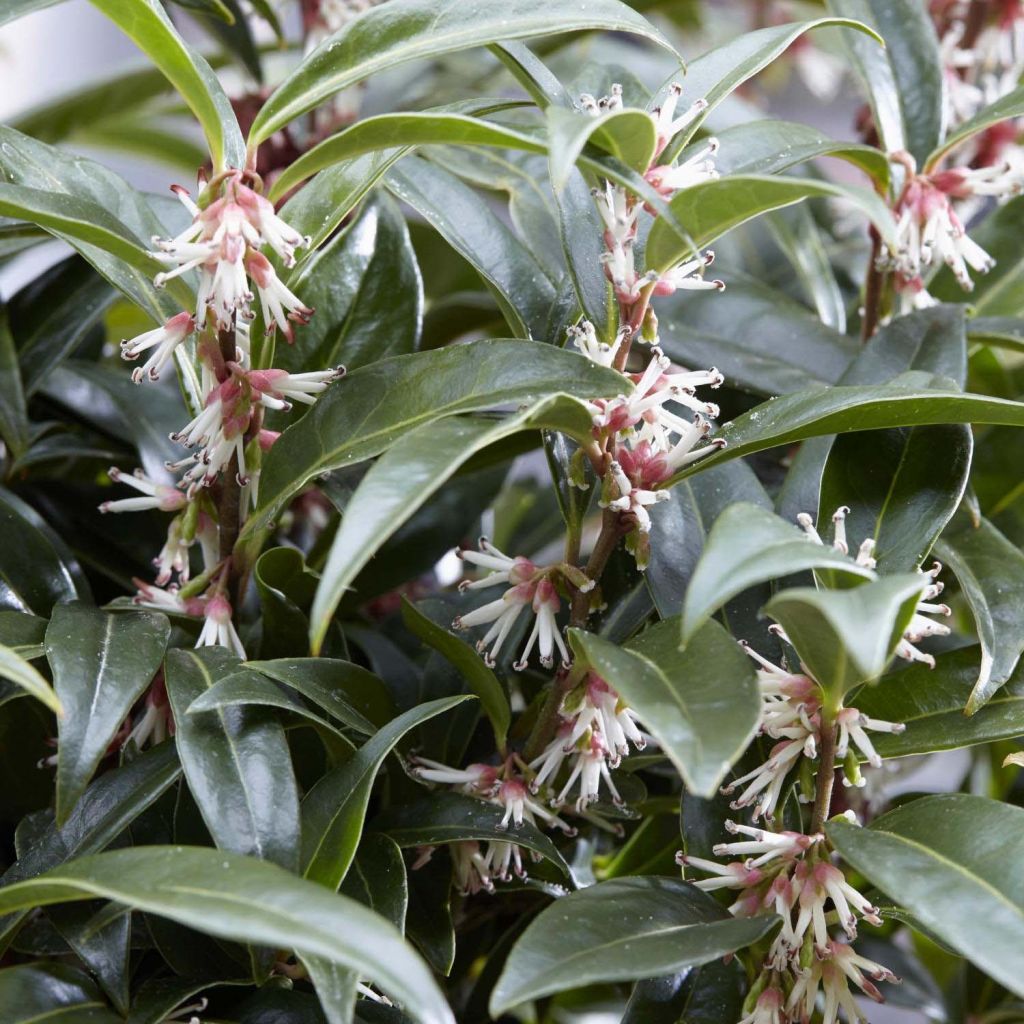

Sarcococca hookeriana Winter Gem
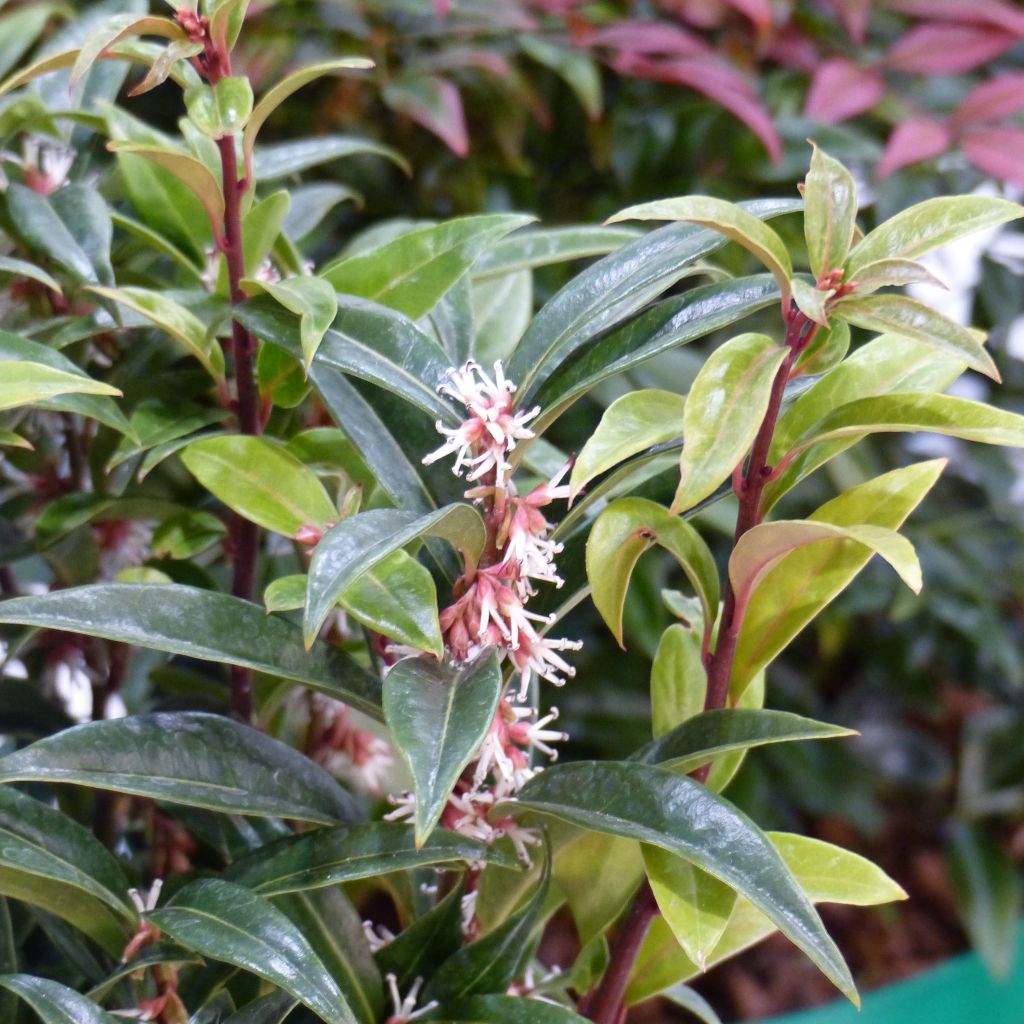

Sarcococca hookeriana Winter Gem
View more pictures
Hide images
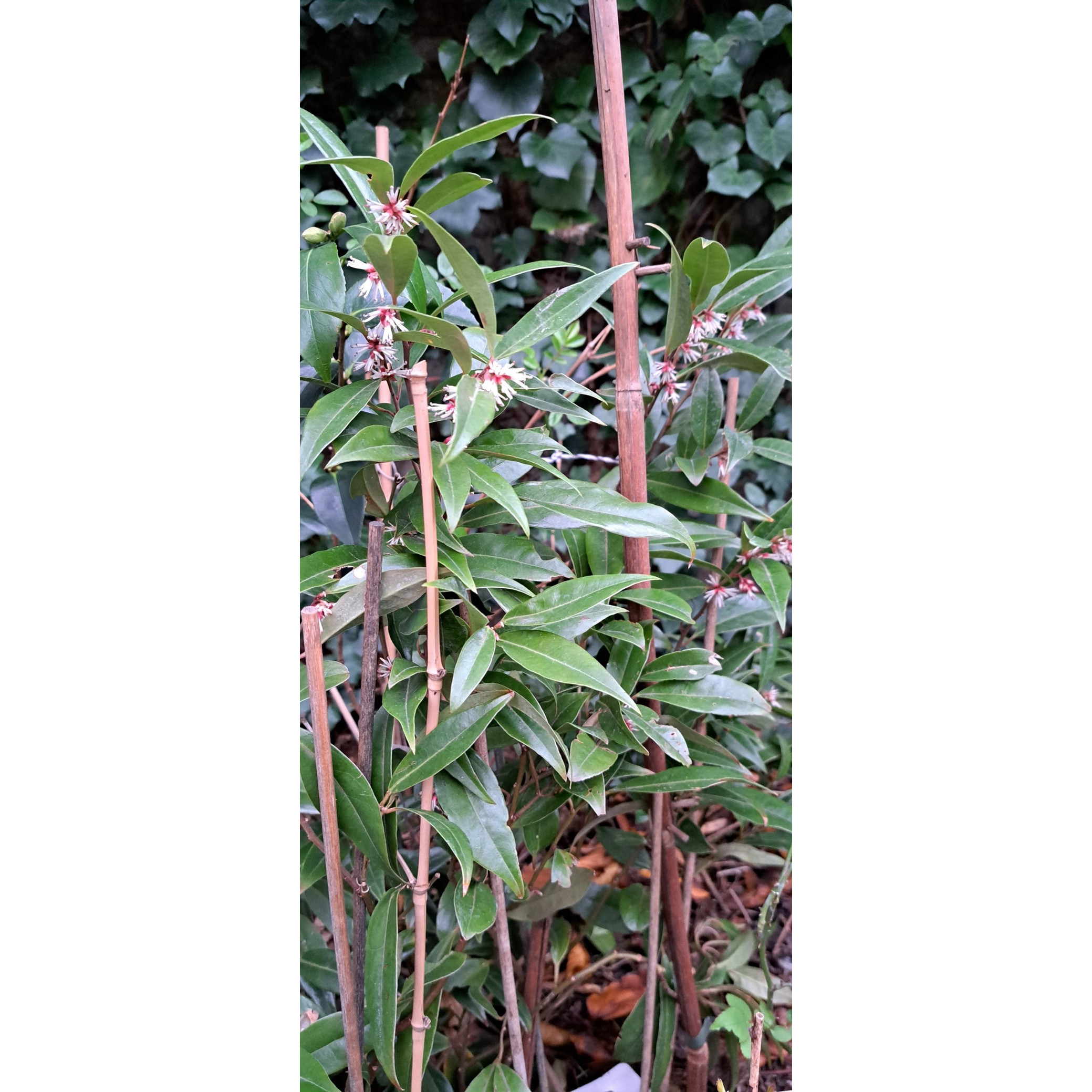
Thierry P.

February flowering - image 2 - it blooms and perfumes a corner of the garden every year (purchase on 29.12.18).
Thierry P. • 84 FR
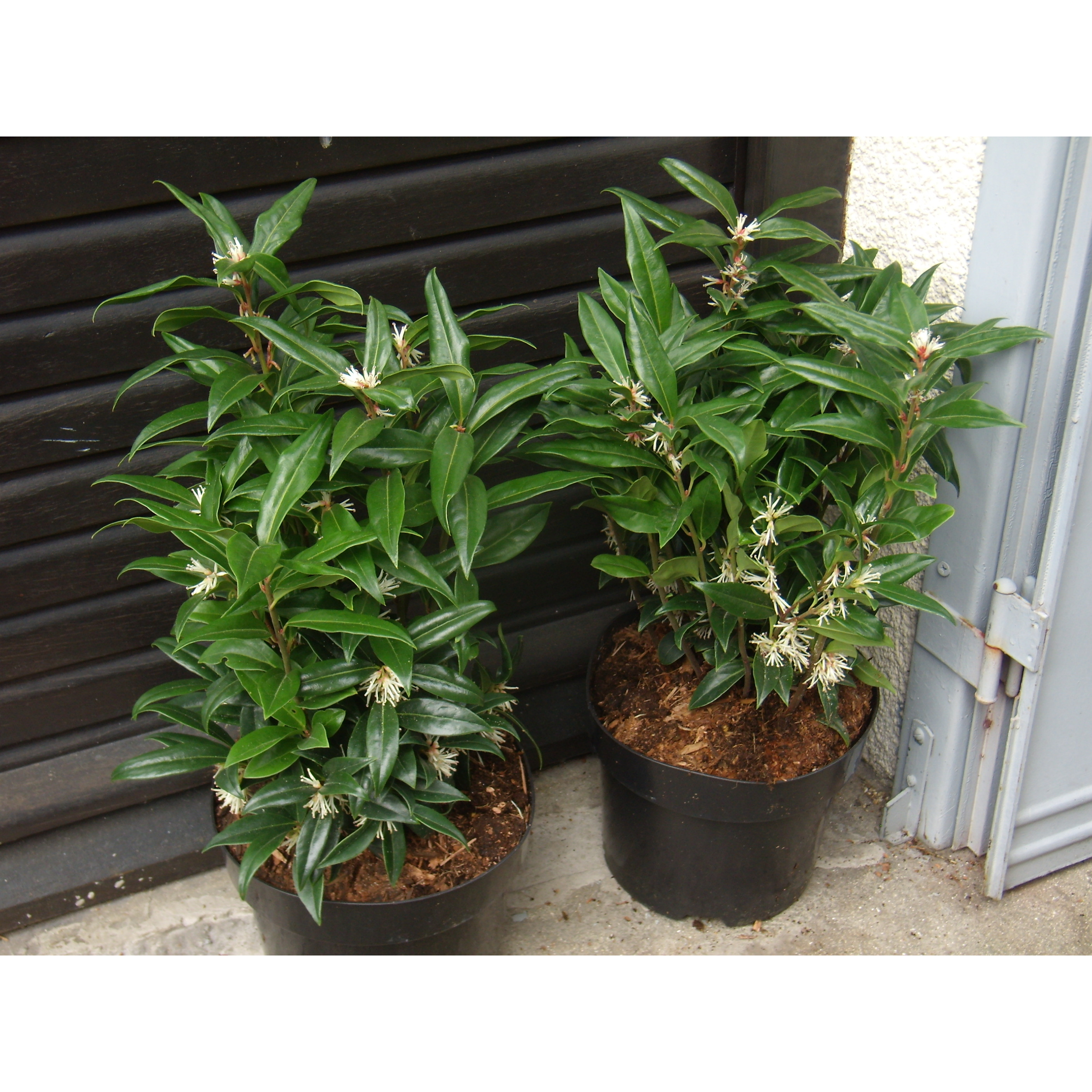
Gisèle D.

Gisèle D. • 93 FR
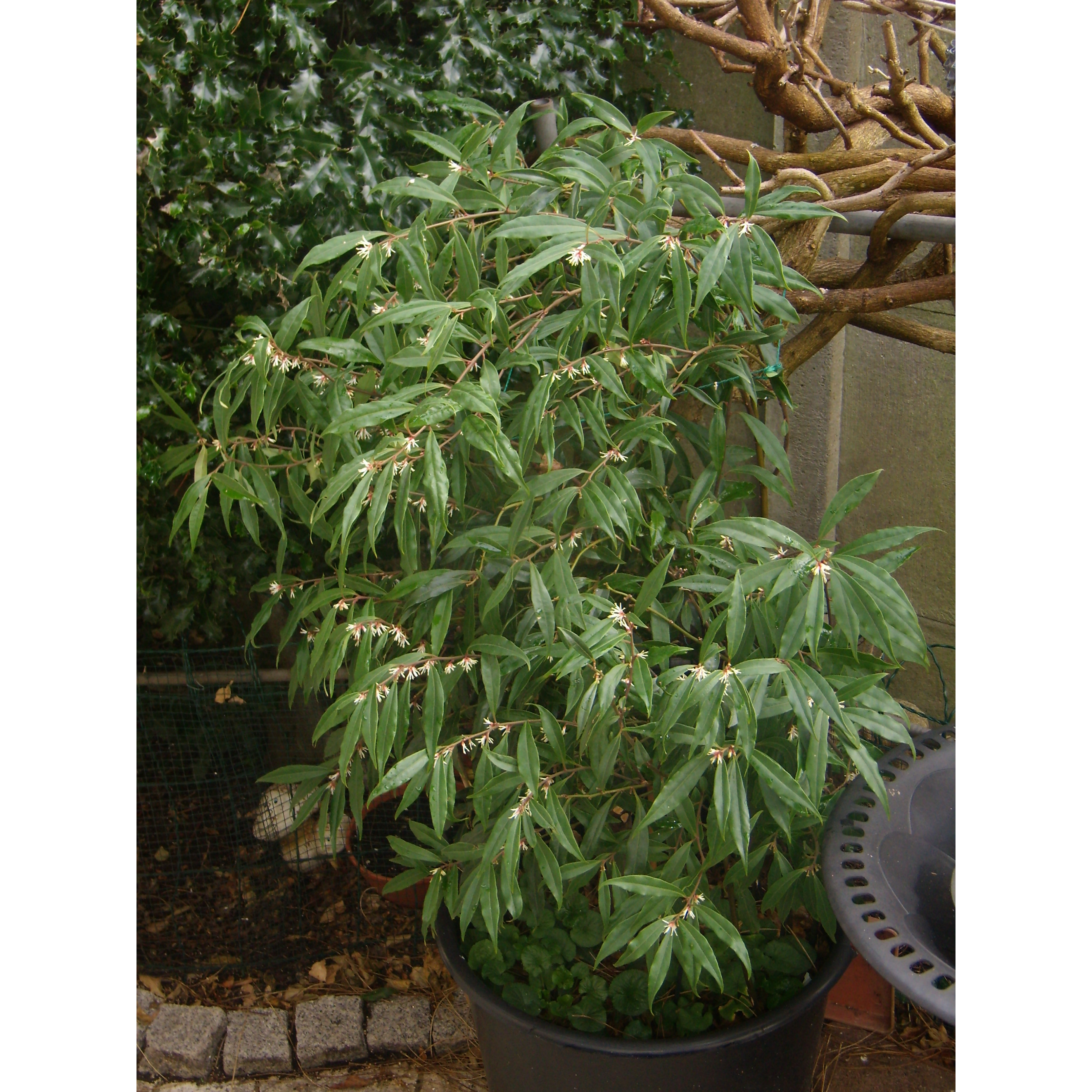
Gisèle D.

Gisèle D. • 93 FR
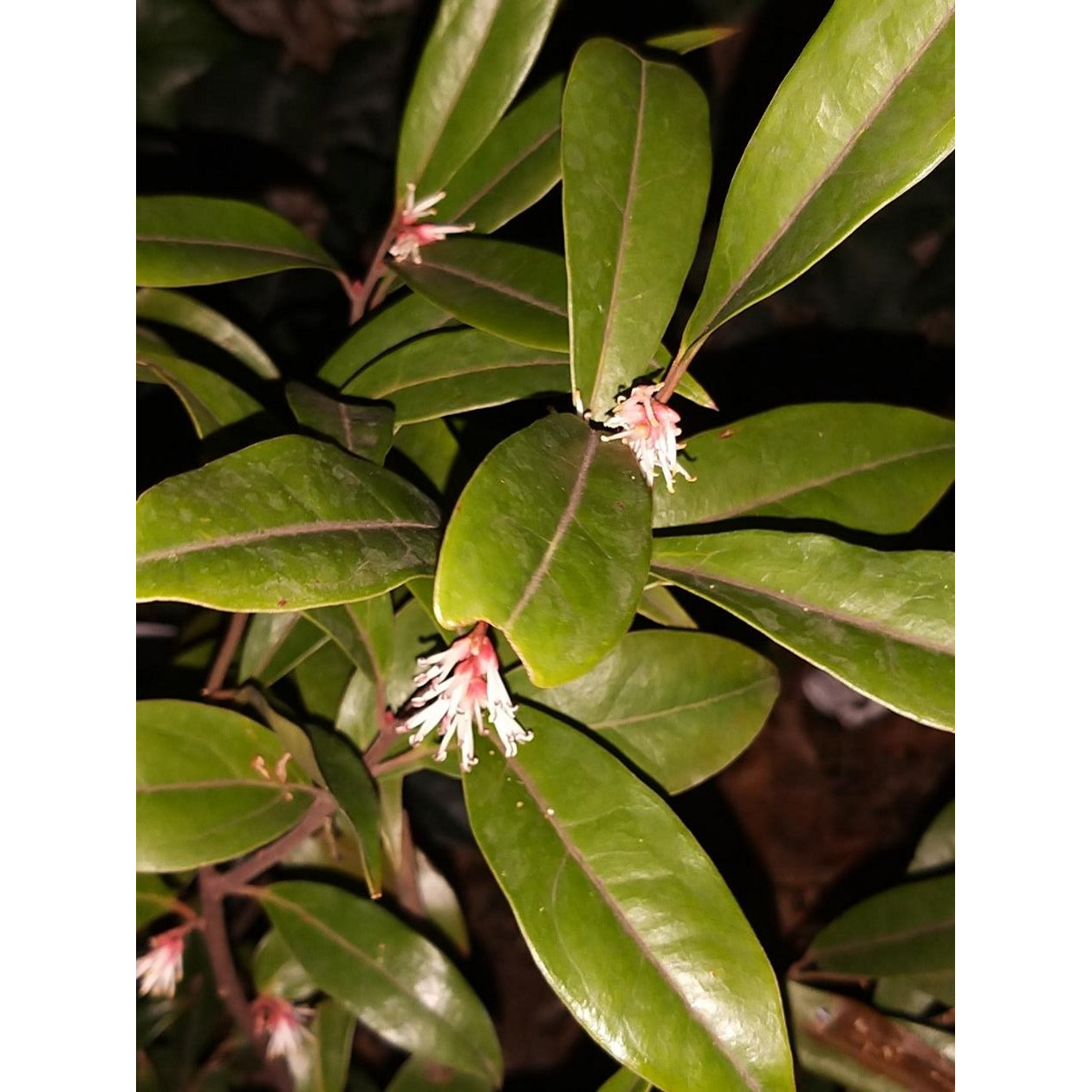
Thierry P.

February flowering - image 1 - Detail of the flowering (its particular fragrance is clearly present in the air).
Thierry P. • 84 FR
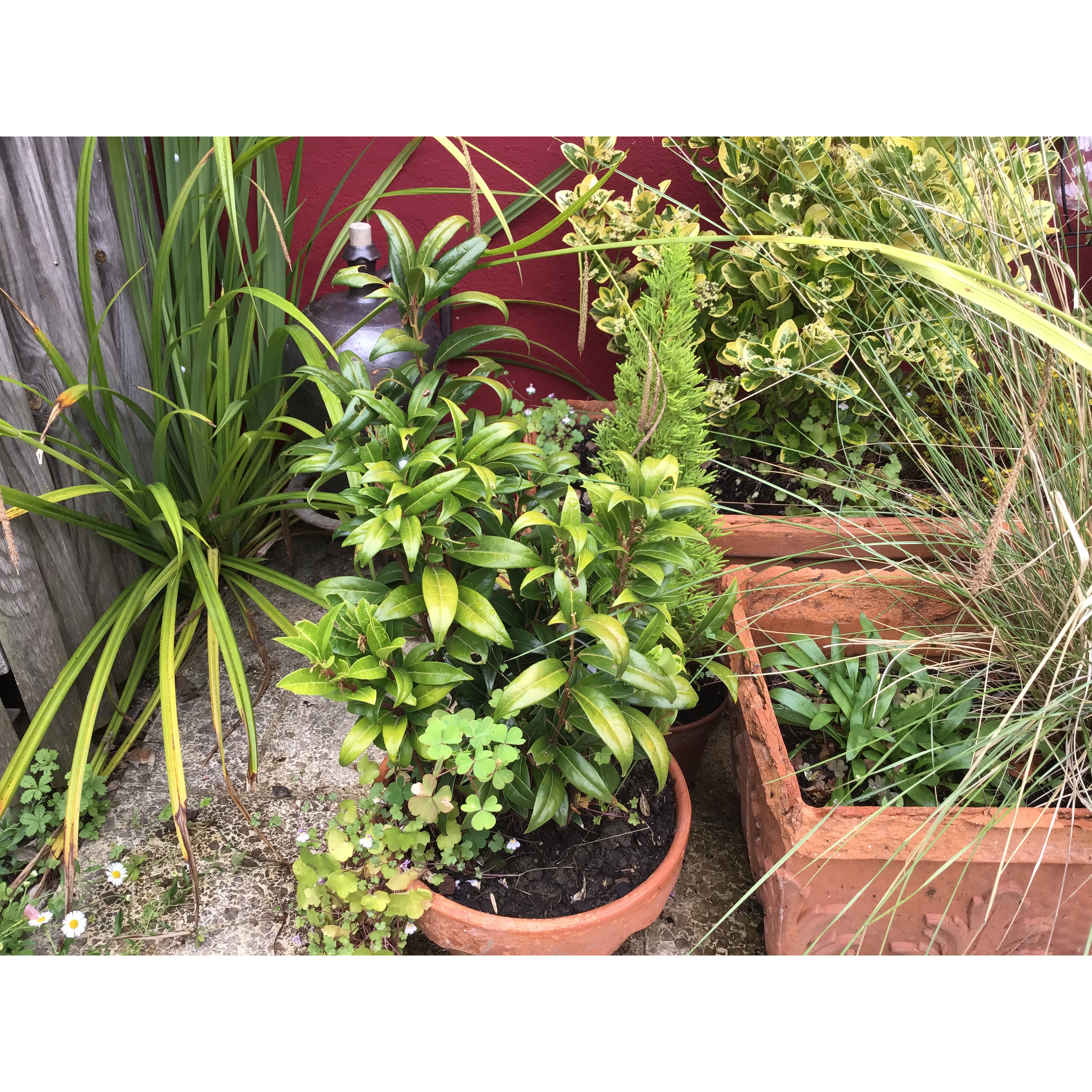
Corinne P.

Sarcococca Winter Gem
Corinne P. • 64 FR
Sarcococca hookeriana Winter Gem
Sarcococca humilis x hookeriana Winter Gem
Sweet Box, Christmas Box, Fragrant Sarcococca
The Sarcococca Wintergem I received in September 2024 didn't survive the winter, so Promesses de Fleurs replaced it with a new one in May 2025: a small but quite bushy young plant that looks very healthy. Planted in shade in suitable soil, we'll see in a year if it has established well.
Alain, 23/05/2025
Special offer!
Receive a €20 voucher for any order over €90 (excluding delivery costs, credit notes, and plastic-free options)!
1- Add your favorite plants to your cart.
2- Once you have reached €90, confirm your order (you can even choose the delivery date!).
3- As soon as your order is shipped, you will receive an email containing your voucher code, valid for 3 months (90 days).
Your voucher is unique and can only be used once, for any order with a minimum value of €20, excluding delivery costs.
Can be combined with other current offers, non-divisible and non-refundable.
Home or relay delivery (depending on size and destination)
Schedule delivery date,
and select date in basket
This plant carries a 24 months recovery warranty
More information
We guarantee the quality of our plants for a full growing cycle, and will replace at our expense any plant that fails to recover under normal climatic and planting conditions.

Would this plant suit my garden?
Set up your Plantfit profile →
Description
Sarcococca 'Winter Gem' is one of those evergreen shrubs with early flowering that announces its presence by perfuming the air in the early days of spring, leading the intrigued visitor, and invariably won over, to the shady corner filled with roots that it seems to be satisfied with. However, this Sarcococca deserves more attention: evergreen, with a compact habit and adorned with beautiful glossy foliage, it turns purple in late winter with young shoots and fragrant flowers tinged with pink-purple. Perfect in shade or semi-shade, ideal for small gardens and well-suited for container gardening, it establishes slowly but surely, and will live for many years without specific requirements. Nevertheless, it will be much more beautiful in a humus-rich, light soil that retains moisture.
Sarcococca 'Winter Gem' is the result of cross-breeding between Sarcococca hookeriana var. humilis, a low, suckering, very compact shrub, and S. hookeriana 'Purple Stem'. Sarcococca hookeriana is a ramified rhizomatous shrub belonging to the boxwood family, closely related to Boxwood, native to western China and the Himalayas. It is commonly found in the evergreen forests of these regions.
The 'Winter Gem' variety forms a small, dense, vigorous, and compact shrub. Its slightly arched stems are initially purple and then brown. It will not exceed 70 to 80cm (27.6 to 31.5in) in all directions after many years, as its growth is quite slow. Its elegant foliage is evergreen and leathery. It is shiny, initially pink-purple when budding and then becomes quite dark green. The leaves are entire, oblong-lanceolate, and very elongated, measuring 6-9cm (2.4-3.5in) in length. The flowers, surrounded by pink bracts, appear from the month of February, sometimes alongside the black fruits, creating a beautiful contrast. They are gathered in short clusters in the axil of the leaves, along the branches. They measure no more than 3 to 5mm (0.1 to 0.2in) in length, are devoid of petals, showing only well-developed white stamens. This highly fragrant flowering lasts for about 2 months, depending on the climate.
Sarcococca is such an undemanding shrub that it is often relegated to dry and shady corners of the garden. It is easy to acclimate in most of our regions due to its good hardiness and tolerance to dry soils. Despite its modest size, it charms with its deliciously fragrant flowering. While it grows slowly, much like dwarf conifers, it knows how to blend in during the summer but effectively structures small spaces in winter and requires very little. It has the advantage of bringing a touch of spring to the garden during the winter season, similar to Mahonias that can accompany it. It can be cultivated in borders, under trees, low hedges, or ground cover. It only fears excessively chalky soils and can tolerate competition from tree roots. It is perfect in the company of ferns, witch hazels, Skimmias, Aucubas, or azaleas. You can even grow it in containers.
Report an error about the product description
Sarcococca hookeriana Winter Gem in pictures
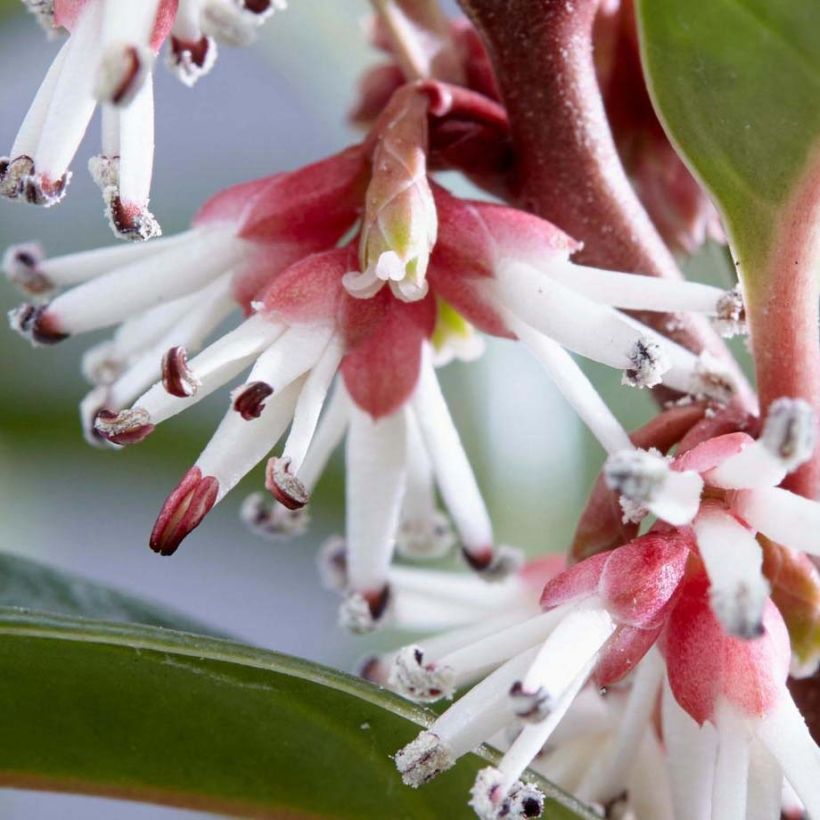

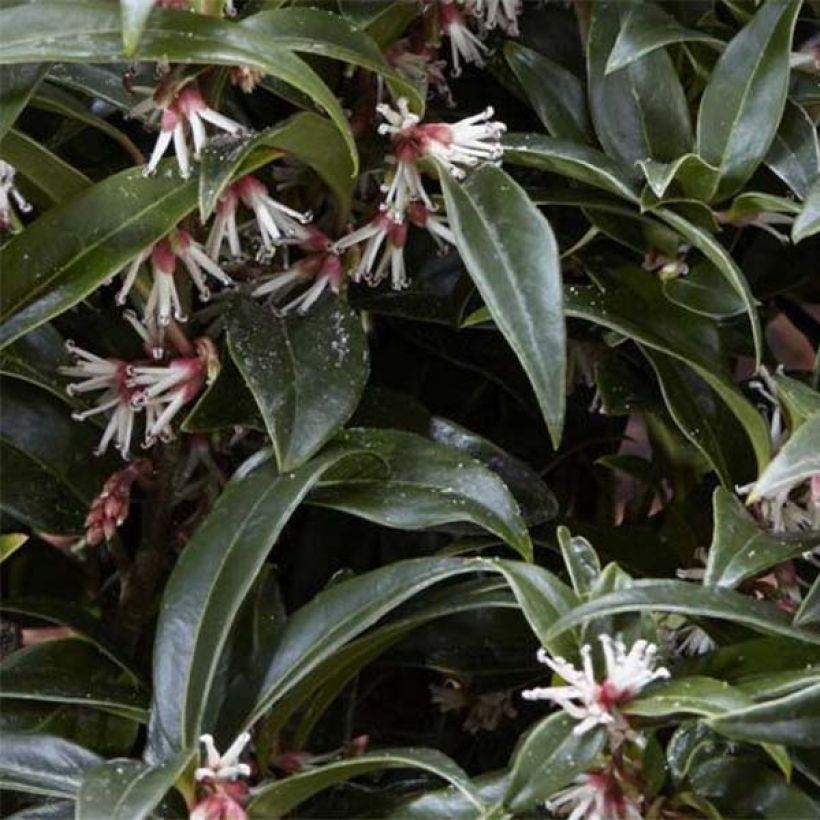

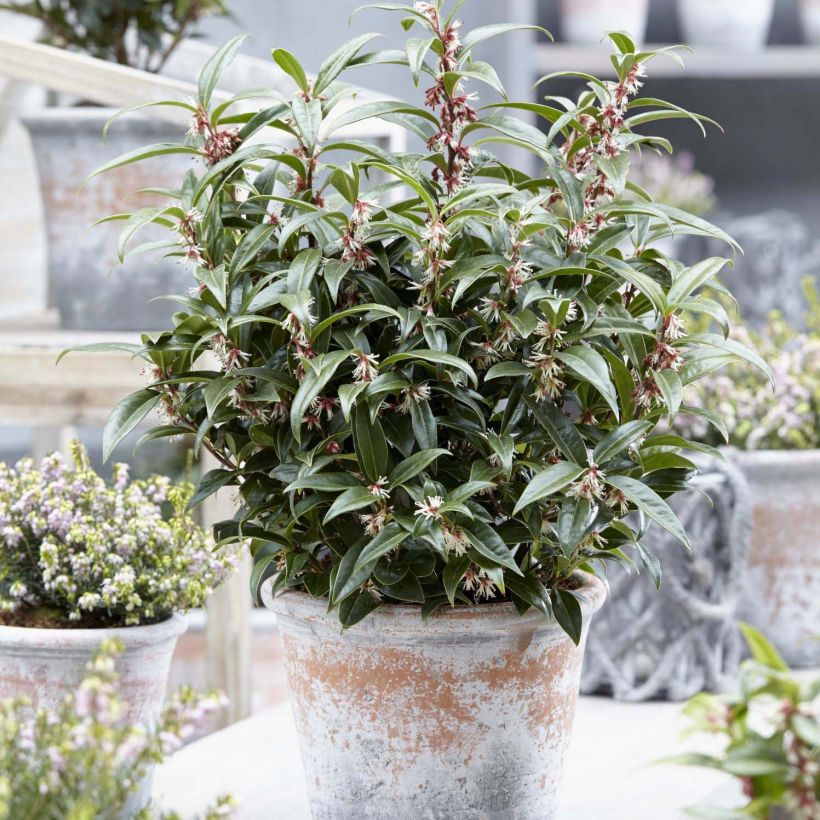

Plant habit
Flowering
Foliage
Botanical data
Sarcococca
humilis x hookeriana
Winter Gem
Buxaceae
Sweet Box, Christmas Box, Fragrant Sarcococca
Cultivar or hybrid
Other Sarcococcas
View all →Planting and care
Sarcococca are so undemanding that they are often reserved for the dry and shady corners of the garden. However, they are much more beautiful in oceanic climates, in light and slightly moist soil, but well-drained (their roots do not like stagnant humidity), and humiferous. They appreciate partially shaded corners, sheltered from cold and dry winds that spoil their flowering, and do not fear the presence of tree roots. This bush has the advantage of requiring little maintenance and likes to be forgotten. After flowering, lightly prune by removing branches that compromise its symmetry. If the winter were to damage the foliage, the plant would easily regrow from the stump. Sarcococca hookeriana fears an excess of limestone and clay in the soil.
Planting period
Intended location
Care
-
, onOrder confirmed
Reply from on Promesse de fleurs
Similar products
Haven't found what you were looking for?
Hardiness is the lowest winter temperature a plant can endure without suffering serious damage or even dying. However, hardiness is affected by location (a sheltered area, such as a patio), protection (winter cover) and soil type (hardiness is improved by well-drained soil).

Photo Sharing Terms & Conditions
In order to encourage gardeners to interact and share their experiences, Promesse de fleurs offers various media enabling content to be uploaded onto its Site - in particular via the ‘Photo sharing’ module.
The User agrees to refrain from:
- Posting any content that is illegal, prejudicial, insulting, racist, inciteful to hatred, revisionist, contrary to public decency, that infringes on privacy or on the privacy rights of third parties, in particular the publicity rights of persons and goods, intellectual property rights, or the right to privacy.
- Submitting content on behalf of a third party;
- Impersonate the identity of a third party and/or publish any personal information about a third party;
In general, the User undertakes to refrain from any unethical behaviour.
All Content (in particular text, comments, files, images, photos, videos, creative works, etc.), which may be subject to property or intellectual property rights, image or other private rights, shall remain the property of the User, subject to the limited rights granted by the terms of the licence granted by Promesse de fleurs as stated below. Users are at liberty to publish or not to publish such Content on the Site, notably via the ‘Photo Sharing’ facility, and accept that this Content shall be made public and freely accessible, notably on the Internet.
Users further acknowledge, undertake to have ,and guarantee that they hold all necessary rights and permissions to publish such material on the Site, in particular with regard to the legislation in force pertaining to any privacy, property, intellectual property, image, or contractual rights, or rights of any other nature. By publishing such Content on the Site, Users acknowledge accepting full liability as publishers of the Content within the meaning of the law, and grant Promesse de fleurs, free of charge, an inclusive, worldwide licence for the said Content for the entire duration of its publication, including all reproduction, representation, up/downloading, displaying, performing, transmission, and storage rights.
Users also grant permission for their name to be linked to the Content and accept that this link may not always be made available.
By engaging in posting material, Users consent to their Content becoming automatically accessible on the Internet, in particular on other sites and/or blogs and/or web pages of the Promesse de fleurs site, including in particular social pages and the Promesse de fleurs catalogue.
Users may secure the removal of entrusted content free of charge by issuing a simple request via our contact form.
The flowering period indicated on our website applies to countries and regions located in USDA zone 8 (France, the United Kingdom, Ireland, the Netherlands, etc.)
It will vary according to where you live:
- In zones 9 to 10 (Italy, Spain, Greece, etc.), flowering will occur about 2 to 4 weeks earlier.
- In zones 6 to 7 (Germany, Poland, Slovenia, and lower mountainous regions), flowering will be delayed by 2 to 3 weeks.
- In zone 5 (Central Europe, Scandinavia), blooming will be delayed by 3 to 5 weeks.
In temperate climates, pruning of spring-flowering shrubs (forsythia, spireas, etc.) should be done just after flowering.
Pruning of summer-flowering shrubs (Indian Lilac, Perovskia, etc.) can be done in winter or spring.
In cold regions as well as with frost-sensitive plants, avoid pruning too early when severe frosts may still occur.
The planting period indicated on our website applies to countries and regions located in USDA zone 8 (France, United Kingdom, Ireland, Netherlands).
It will vary according to where you live:
- In Mediterranean zones (Marseille, Madrid, Milan, etc.), autumn and winter are the best planting periods.
- In continental zones (Strasbourg, Munich, Vienna, etc.), delay planting by 2 to 3 weeks in spring and bring it forward by 2 to 4 weeks in autumn.
- In mountainous regions (the Alps, Pyrenees, Carpathians, etc.), it is best to plant in late spring (May-June) or late summer (August-September).
The harvesting period indicated on our website applies to countries and regions in USDA zone 8 (France, England, Ireland, the Netherlands).
In colder areas (Scandinavia, Poland, Austria...) fruit and vegetable harvests are likely to be delayed by 3-4 weeks.
In warmer areas (Italy, Spain, Greece, etc.), harvesting will probably take place earlier, depending on weather conditions.
The sowing periods indicated on our website apply to countries and regions within USDA Zone 8 (France, UK, Ireland, Netherlands).
In colder areas (Scandinavia, Poland, Austria...), delay any outdoor sowing by 3-4 weeks, or sow under glass.
In warmer climes (Italy, Spain, Greece, etc.), bring outdoor sowing forward by a few weeks.






























